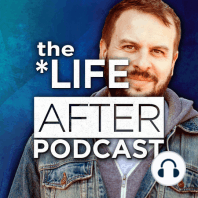76 min listen

Enough (Domestic Violence x Mental Health) with Ashley Adams
Enough (Domestic Violence x Mental Health) with Ashley Adams
ratings:
Length:
91 minutes
Released:
Sep 19, 2017
Format:
Podcast episode
Description
Trigger warning: Episode touches on domestic abuse (and begins with a John Piper audio clip).
Ashley Adams is a strong woman. She has overcome a lot including growing up with Brady, navigating youth group with undiagnosed depression and anxiety, the loss of her mother, domestic abuse, divorce, and more. She joins hosts Brady Hardin and Chuck Parson to tell her brave story of how she had enough and fought back hard for her own happiness and fulfillment.
This episode mentions domestic abuse without going into detail. If you are being abused by your partner, know there is nothing you have done or are doing to cause the abuse. It is solely the choice of the abuser. It may seem impossible to leave, change your circumstances, or reach out and ask for help you need, but it is possible. However, you know your abuser best, so think carefully through your situation and circumstances and do what is the best for you.
If you are in immediate danger, call 9-1-1.
For anonymous, confidential help, 24/7, please call the National Domestic Violence Hotline at 1-800-799-7233 (SAFE) or 1-800-787-3224 (TTY).
http://ncadv.org/learn-more/get-help
Find links for The Life After Community (our secret Facebook group), subscribing, rating, and/or reviewing on iTunes here: linkin.bio/thelifeafterorg
Ashley Adams is a strong woman. She has overcome a lot including growing up with Brady, navigating youth group with undiagnosed depression and anxiety, the loss of her mother, domestic abuse, divorce, and more. She joins hosts Brady Hardin and Chuck Parson to tell her brave story of how she had enough and fought back hard for her own happiness and fulfillment.
This episode mentions domestic abuse without going into detail. If you are being abused by your partner, know there is nothing you have done or are doing to cause the abuse. It is solely the choice of the abuser. It may seem impossible to leave, change your circumstances, or reach out and ask for help you need, but it is possible. However, you know your abuser best, so think carefully through your situation and circumstances and do what is the best for you.
If you are in immediate danger, call 9-1-1.
For anonymous, confidential help, 24/7, please call the National Domestic Violence Hotline at 1-800-799-7233 (SAFE) or 1-800-787-3224 (TTY).
http://ncadv.org/learn-more/get-help
Find links for The Life After Community (our secret Facebook group), subscribing, rating, and/or reviewing on iTunes here: linkin.bio/thelifeafterorg
Released:
Sep 19, 2017
Format:
Podcast episode
Titles in the series (59)
#EmptyThePews (Spiritual Abuse x Deconstruction Movement) with Chrissy Stroop: *Chrissy has since transitioned since this episode and the description has been updated to reflect it. Chrissy Stroop, PhD created the #EmptyThePews Movement to ask Evangelicals to examine the fruits of their religion and walk away from its grip. Chrissy... by The Life After Podcast